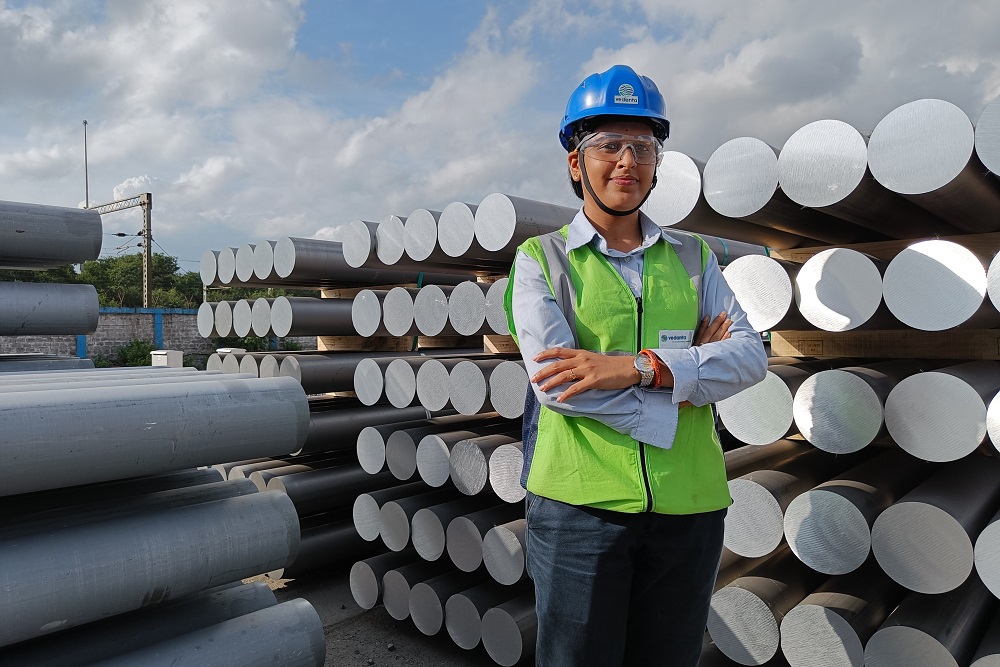The transportation sector is poised to maintain its position as the primary consumer of aluminium
In recent years, India has witnessed a remarkable transformation in its transportation landscape, driven by an increasing awareness of the need to conserve our environment, and thereby the rising urgency to reduce carbon footprints. Electric vehicles (EVs) have emerged as a solution to these challenges, and nowhere is this more apparent than in India, where the EV market in India is experiencing rapid growth.
The Indian government has been proactive in supporting this burgeoning sector through initiatives such as the Faster Adoption and Manufacturing of Hybrid and EV (FAME) II scheme, as it strives for India’s automotive industry to secure the 3rd position globally by 2030. This scheme not only aims to reduce primary oil consumption and urban pollution levels, but also focuses on boosting battery production and enhancing EV manufacturing capabilities on a global scale. Additionally, the NITI Aayog has also released a comprehensive handbook in 2021 which provides guidance in the development of EV charging infrastructure across India.
Role of Aluminium in the EV Industry
Amid this surge in EV adoption, one unsung hero has played a pivotal role since the inception of the electric vehicle revolution – Aluminium. This versatile metal is poised to take centre stage in the EV sector for several compelling reasons.
Aluminium boasts unique properties that make it an indispensable component in the future of automotive innovation. Its unmatched strength-to-weight ratio, corrosion resistance, and recyclability position it as a key player in the automotive landscape. From the core of the vehicle’s engine to the casings of advanced batteries, aluminium finds use at every juncture of modern automotive design.
Furthermore, aluminium plays a crucial role in establishing a robust charging infrastructure throughout the country. By harnessing aluminium’s properties, companies can construct charging stations at lower costs, making them more accessible for EV users. Reports suggest that aluminium’s ubiquity as the second most common metal in automobiles is projected to rise an impressive 1.5 times to 250 kg in the next 5 years.
Industry experts increasingly recognize the crucial role aluminium plays. The transportation sector is poised to maintain its position as the primary consumer of aluminium, with a projected global demand of 31.7 million metric tons by 2030 – approximately 8.7 million metric tons more than its 2021 consumption levels of 23.0 million metric tons. A study conducted by business intelligence analysts CRU International on behalf of the International Aluminium Institute (IAI), indicates that around 63% of the growth in this sector is expected to stem from the adoption of electric vehicles. Companies such as Vedanta, the largest producer of aluminium in India, feature extensive manufacturing abilities that equip it to suitably meet this emerging demand.
Ecosystem Required to Increase Aluminium Contribution in the EV Industry
As aluminium’s critical role in shaping the EV industry grows, it is essential to acknowledge the need for a supportive ecosystem to maximize its contribution. The rapidly growing EV market in India necessitates substantial infrastructure development. Aluminium holds the key to making these vehicles genuinely eco-friendly and sustainable.
Nevertheless, there are challenges to overcome. To harness aluminium’s full potential, a consistent and reliable supply chain for harnessing this metal must be established. This includes ensuring a steady supply of high-quality raw materials, efficient processing, and distribution networks while minimizing the environmental impact of extraction and production.
Research and development efforts should also focus on innovative uses of aluminium in EVs, including the development of advanced alloys with even greater strength, lightweight properties, and durability. Collaborative efforts between automakers, aluminium producers, and research institutions can accelerate these advancements.
Hence, the synergy between the thriving electric vehicle (EV) market in India and the pivotal role of aluminium in driving sustainability and innovation creates a powerful case for the future of transportation. As India charts its path toward a greener and more eco-conscious mobility ecosystem, it is evident that aluminium’s multifaceted attributes will continue to shape the EV sector. Lastly, collaborations with sustainable aluminium producers specializing in low carbon ‘green’ aluminium, such as Vedanta’s Restora range, can further accelerate India’s ascent as a global leader in sustainable mobility and aluminium production.
(This article is authored by Sunil Gupta, COO, Vedanta Ltd. – Aluminium Business)



